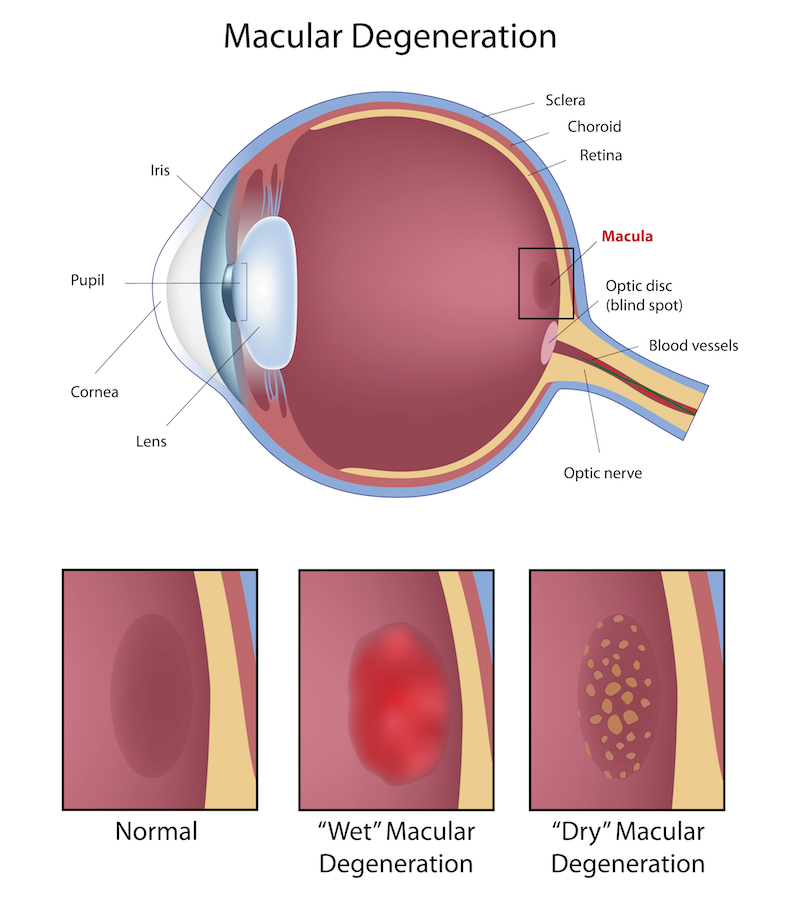Eye diseases and conditions
Macular Degeneration

Macular degeneration is a disease of the retina, specifically the macula. The macula is the central portion of the retina and is responsible for your ability to see fine detail clearly. When you focus directly on something, it is your macula that you are using. As macular degeneration occurs, it begins to cause blur, blind spots, or distortion in your central vision. The peripheral vision will remain intact. It’s true macular degeneration can cause blindness, but in many cases patients can retain fairly good visual function. There are two types of macular degeneration, dry and wet. Dry (non-exudative) macular degeneration is the most common form, typically causing less vision loss over a longer period of time. Wet (exudative) macular degeneration occurs when bleeding or fluid accumulates in the macula secondary to abnormal blood vessels that tend to be leaky. This usually causes a very sudden and dramatic change in vision. Wet macular degeneration can be treated with injections into the eye that reduces the growth of these abnormal blood vessels. It’s important to diagnose it as early as possible. If you are diagnosed with either kind of macular degeneration, you will likely be given an Amsler grid to monitor your vision on a weekly basis. Changes in your Amsler grid appearance, like blind spots or distortion, should be reported immediately to your eye doctor, as this could be a sign of the onset or progression of wet macular degeneration. Usually, the sooner the treatment is initiated, the better the visual outcome.
Risk factors for macular degeneration include smoking, UV exposure, and poor nutrition. You should cease smoking, wear sun protection, and modify your diet if you want to lower your risk and especially if you’ve already been diagnosed. There are over-the-counter vitamin supplements on the market that are specifically formulated for people with macular degeneration. These are called AREDS 2 (an acronym for the Age Related Eye Disease Study that discovered their value) vitamins and consist of a cocktail of the anti-oxidants Vitamin C, Vitamin E, zinc, lutein, zeaxanthin, and copper. These same anti-oxidants are found in dark, leafy, green vegetables like spinach and kale. Family history also plays a role in whether you may develop macular degeneration. Regular eye examinations can help determine if you are at risk for macular degeneration and what steps you should be taking to lower your risk.

